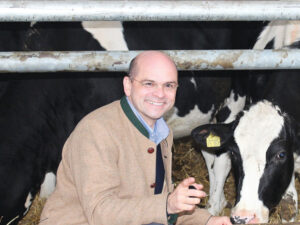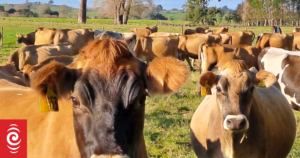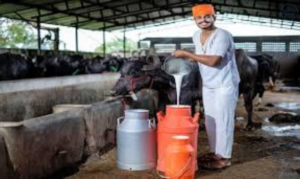
In a recent development, German Members of Parliament (MPs) Tim Klüssendorf from the Social Democratic Party (SPD) and Bruno Hönel from the Green Party have put forward a proposal to amend the country’s tax regulations, aiming to lower the taxes imposed on plant-based milk products. Presently, alternative milk, often referred to as alt-milk, is subjected to a tax rate of 19%, while dairy products are taxed at a reduced rate of 7%. DURING THE ANNUAL TAX LAW NEGOTIATIONS, the SPD and the Green Party are advocating for a more equitable value-added tax (VAT) rate.
Klüssendorf emphasizes that the VAT, a central consumption tax, should align with people’s consumption patterns. Notably, plant-based milk alternatives currently bear a disproportionately high tax burden of 171% compared to conventional dairy. However, a report by ProVeg International from the previous year revealed that 28% of Germans incorporate plant-based milk into their diets at least once a week.
Concurrently, the Good Food Institute (GFI) Europe, an industry think tank, unveiled findings indicating that Germany leads regarding the value of plant-based milk sales across Europe. Another report by the same organization highlighted a 20% growth in unit sales of plant-based milk between 2020 and 2022 in Germany. Despite this growth, these products constitute only 13% of the total milk market share. Furthermore, GFI disclosed that, on average, Germans spent €6.60 on plant-based milk the previous year.
Catering to Consumer Demand
Bruno Hönel, speaking to the German newspaper Welt am Sonntag, stated, “With the shift in dietary preferences over recent years and decades, plant-based milk has emerged as a daily alternative to cow’s milk for many individuals. Moreover, it boasts environmental benefits.” Notably, oat milk, the most popular plant-based milk in Germany, requires over 11 times less land, consumes 13 times less water, and emits 3.5 times fewer greenhouse gases than conventional dairy, according to research from Oxford University conducted in 2018.
Tim Klüssendorf expressed his view on the need for modernization, asserting in a LinkedIn post that “Equal tax treatment of milk and milk substitutes is long overdue, as it aligns with social realities and ensures fairness in consumer behaviour.”
Klüssendorf expressed optimism about the proposed change, stating to Welt, “I am confident that we have a good chance of securing the necessary majority in the traffic light coalition.”
However, Hönel cautioned that the outcome of discussions would be influenced by budgetary considerations. The Free Democratic Party (FPD), part of the coalition government alongside the SPD and the Greens, remains cautious about the proposal. Till Mansmann, an FPD expert on VAT, emphasized the need to wait for the upcoming tax estimate this Autumn before making any decisions.
The German Economic Institute (IW) proposed a more extensive approach, suggesting a reduction of VAT to 7% for all non-alcoholic beverages. Martin Beznoska, a tax expert at IW, stated, “This move would not only eliminate the distinction between cow’s milk and vegan milk substitutes but also establish uniform tax rates for nearly all food items.”
Consumption Patterns and Trends
Recent studies have illuminated the shifting dietary preferences in Germany. A study from the previous year indicated that 32% of Germans intended to decrease their consumption of conventional dairy in the subsequent six months. Additionally, research conducted by the University of Hohenheim earlier this year demonstrated that Germany holds substantial potential for growth in the plant-based milk sector, with purchases already escalating by 62% between 2020 and 2022.
The surge in plant-based milk consumption in Germany is attributed to strong concerns about animal welfare. Dr. Beate Gebhard, head of AK BEST at the University of Hohenheim, highlighted that social norms and cultural traditions have a lesser influence on Germans than people in other nations in shaping these preferences.
As per a USDA’s Foreign Agricultural Service report, Germany boasts the largest flexitarian population (55%) and the highest percentage of vegans (approximately 10%) in Europe. The report credited political determination as pivotal in shifting consumer behaviours and attitudes towards reduced meat consumption.







